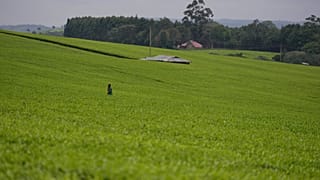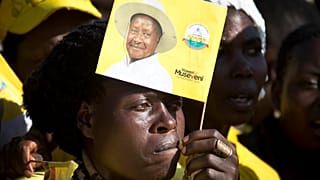plastic waste
From the Galapagos Islands to India, tiny plastic pellets known as nurdles are turning up in some of the world’s most ecologically sensitive places.
A new report by charity Fidra has found they are contaminating biodiversity hotspots in 23 regions around the world, with 90 per cent of surveyed sites containing them.
These environments rely on clean and stable conditions, yet they are increasingly exposed to nurdles which are used as a raw material in the manufacturing of plastic products.
Megan Kirton, Senior project officer at Fidra, says that this year alone, they’ve seen two major nurdle spills happen around the world.
“The first one in March impacted the coast in the UK after a container ship collision happened in the North Sea. Millions of nurdles ended up washing up,” she says.
In May, another vessel sank off the west coast of India leading to a massive nurdle spill with millions washing up and devastating fishing communities, as well as wildlife along the coast.
Fidra’s global Great Nurdle Hunt project found that the pellets are turning up pretty much everywhere.
With plastic production rising, they are increasingly being shipped around the world and washing up on beaches Kirton says.
“So, even countries that don't produce plastics are not safe from this pollution.”
The pellets can travel across oceans, collect on beaches, and settle among corals, where they can be mistaken for food by marine life.
Along coastlines around the world, nurdles have been found embedded in larger masses of degraded plastic waste.
Their small size and buoyancy mean they can accumulate in sensitive areas and persist for years.
Conservationists say recovery from this pollution can take many years, which is why preventative action is so important.
"It requires globally coordinated solutions alongside national action for effective prevention. So Fidra is calling on companies that handle pellets to implement good practise measures at all stages of the supply chain,” Kirton says.
“This can be simple measures, like packaging them more safely when they're on board ships. We also need governments around the world to bring in effective laws to make these measures mandatory."
As countries prepare for renewed negotiations on a United Nations global plastics treaty in 2026, the Great Nurdle Hunt findings add to calls for stronger international rules on plastic pellet management.
The treaty process has faced disagreements between nations over binding targets and enforcement, and campaigners say clearer global standards on handling nurdles could form a practical area of progress.










02:31
Plastic pollution threatens Lake Malawi’s unique fish
02:17
AFCON 2025: The coelacanth, Comoros' national symbol in football and beyond
02:09
Toxic smoke chokes Conakry community as residents plead for government action
Go to video
Sierra Leone chimpanzee sanctuary reopens after securing forest protection
Go to video
Science mission finds glimmer of hope for marine biodiversity in ocean depths off Comoros
02:20
Plastic bottles and food wrappers hit the runway in Lagos “trashion” show